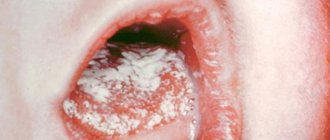The only way for a newborn to communicate with people around him is to cry. A baby cries to express all its needs; it cannot communicate otherwise until it grows up and learns its first words and expressions. Understanding what the baby wants in such cases is not so easy.
Therefore, he will tend to cry when he is hungry or experiencing:
- I'm thirsty.
- Inconvenience.
- Pain.
- Loneliness.
- Boredom.
- Anxiety.
Crying may also precede the passage of urine. In fact, this behavior is considered normal and healthy, and is often present in children between 6 and 9 months of age. However, it should be a cause for concern if a baby begins to cry before peeing, although not a reason for parents to panic.
Urinary tract infections are the most common reason a baby cries while urinating. When a baby is sick with an infection, it will cause pain while urinating and hence he will cry. However, there may be other reasons.
The fact that a baby cries before peeing may be due to the state of his diaper being full by that time. It is better not to ignore crying if there is visible discomfort and other symptoms.
The risk of developing a urinary tract infection is higher if parents do not carefully wash the child (not properly) after bowel movements or urination. If your baby wears a diaper, it should be changed frequently to prevent the spread of bacteria that can lead to infection. If diapers go unchanged for too long, it can cause a painful and uncomfortable rash.
Discomfort
Why does a baby cry before peeing? The fact is that quite often this phenomenon depends on the gender of the child. Boys, as practice shows, cry more often than girls before urinating.
Why does this happen? It's all due to the most common discomfort. For example, caused by a diaper that is too small or too tight. The penis becomes tense when urinating. If the diaper is tight or small, then there will be a certain additional pressure on the child’s genitals. Accordingly, this phenomenon will be emphasized by crying.
What to do? This phenomenon does not require treatment. You just need to choose a diaper size larger. Or do not tighten the existing diaper too tightly. Once the cause of the discomfort disappears, you will notice that the baby no longer cries before urinating.
Serious reasons
Skin problems
Irritations of the dermis, diaper rash and dermatitis that occur due to insufficient hygiene can cause pain in the baby during urination. If the baby lies for a long time in an already used diaper, urine and feces can cause chemical burns to the skin in delicate places.
Inflammation
Inflammatory diseases of the urinary tract also often lead to the child being capricious before urinating. A doctor will be able to diagnose pyelonephritis and cystitis based on test results. Based on the stage of the disease, a pediatrician or specialist will prescribe a course of therapy that is appropriate for your age.
Phimosis
This anatomical deviation also causes pain due to which the baby cries before peeing. With phimosis, the stream of urine will be very thin, the foreskin will often turn red, and the head of the penis will swell. In advanced cases, discharge and then pus begin to ooze from under the foreskin.
Urerta fusion
If only boys are susceptible to phimosis, then fusion of the urerta is a “girlish” pathology. A passage that is too narrow does not allow urine to come out in such a stream as it should, and therefore the process of urination brings suffering to the girl.
Testicular descent
Another pathology affecting the stronger sex is the descent of the testicles. With this phenomenon, the baby will experience pain during the act of urination.
Increased urine concentration
If an infant does not receive enough fluids in his diet, his urine may become highly concentrated. As it passes through the sensitive excretory system, it irritates it and causes burns to the skin it comes into contact with. It hurts the baby when the urine goes through the canal and comes out - that's why the newborn cries.
You can determine the concentration of a secreted substance by its color. Place a white diaper or a clean gauze diaper on the baby's genitals and wait until the baby pees. If the urine is dark or orange, increase the amount of fluid the baby drinks and be sure to notify your pediatrician.
Natural causes and the possibility of eliminating them
Crying during urination is not necessarily a consequence of a pathological or inflammatory process. This may be an unpleasant sensation from tight diapers or diapers at the moment when the penis becomes tense. Discomfort makes the boy express dissatisfaction. This may simply be a signal about the filling of the bladder, which is full and will now be released.
This is not typical for young children, but some boys begin to signal this quite early. A possible reason may be that the process of controlling the natural needs of the body is just being mastered by the brain, which reacts to this with dissatisfied signals, causing the child to cry.
Irritation
What other options for the development of events take place? If your baby cries before peeing but nothing else bothers him, it is likely that the problem is not that serious. Parents should take a good look at the child's genitals. This is especially true for boys.
Perhaps irritation has appeared on the genitals. For example, from being in a dirty diaper for a long time. Then urination will bring discomfort and even some pain and burning.
It’s all quite easy to treat—it’s enough to let the child spend more time without a diaper and take air baths. It is also necessary to lubricate damaged skin with baby moisturizer. Or use powder. Once the irritation goes away, there will be no problems with urination. The baby will stop crying when he urinates.
Reasons for newborn crying before peeing?
1. Diaper rash, irritation on the skin and mucous membranes, dermatitis often cause discomfort and pain in infants. Moisture washes away the baby's natural protective barrier. Urine salts, when destroyed, form ammonia, which has a cauterizing effect, and it is natural that the baby cries before peeing, since he already knows that after this it will hurt. Lack of air access in the diaper and constant friction of the skin aggravate the situation and cause even more irritation.
Solution
- pediatrician consultation;
- compliance with hygiene rules: timely change of diapers, regular toileting of the baby’s genitals, air baths, use of high-quality cosmetics and skin care medications;
- correct selection of a diaper based on the composition of the absorbent material, weight and body structure of the baby.
2. Inflammatory (pyelonephritis, cystitis), infectious and allergic diseases. Restlessness and crying of the baby when he pees, urinary retention are some of the main symptoms of the disease. At the same time, an increase in body temperature may be observed, but in many babies it remains at a normal level, which complicates the diagnosis.
Solution
- consultation with a pediatrician, pediatric urologist, nephrologist, allergist;
- clinical tests and additional studies (urinalysis, blood tests, ultrasound diagnostics, etc.);
- local or complex treatment prescribed by a qualified specialist;
- diet and drinking regime;
- constant monitoring of the frequency of urination, quantity and content of urine to prevent the occurrence of diseases.
3. Insufficient amount of fluid in the baby’s body, dehydration. If there is a lack of fluid, the baby rarely pees and the concentration of urine increases. This is what causes pain while passing through the urethra, and as a result, the baby cries before peeing.
Solution
- pediatrician consultation;
- optimization of the drinking regime: increasing the number of breastfeedings or increasing the frequency of formula feedings, supplementing with water.
- The baby thus communicates its desire to pee. Some babies clearly feel their bladder is full and cry before peeing.
- Fear from the very process of urination. The baby is not always aware of what is happening to him at the moment and this can cause anxiety and even fear. The presence of the mother, the gentle timbre of her voice and stroking will help the baby calm down.
- Irritation from exposure to chlorinated water. Babies with sensitive skin experience discomfort when they are washed with tap water. The baby feels a burning sensation on the skin and that is why he cries before peeing. A specialist will help you choose products for proper care of sensitive skin and medications (creams and powders) to relieve irritation.
Solution to the problem:
- pediatrician consultation;
- toileting the genitals with boiled water, selecting hypoallergenic cosmetics and antiseptics for care, occasional use of gels and soap compositions.
A newborn baby has weak muscles of the genitourinary system, and therefore the process of urination occurs at the level of reflexes. As a rule, the baby does not experience any discomfort.
As the child gets older, the bladder muscles become stronger. They can form by a year or two. For some, this process drags on for up to 4 years. However, if a newborn cries before urinating, then you need to pay special attention to this.
Sometimes parents are faced with the fact that the baby cries before peeing.
Why might this be? How to help a child in this situation? Should you panic right away? Or are there any cases in which you can handle it yourself? In fact, this phenomenon should not be overlooked.
You don’t have to go to the doctor right away, but you will have to take a closer look at your child. And to his genitals too. After all, crying during urination is not only the norm in some cases, but also a signal indicating certain diseases.
Does your baby cry before peeing? The first and completely normal reason is banal fear. The thing is that young children do not yet understand what is happening to their body. Therefore, any changes cause panic.
Especially when it comes to urination. This process is also accompanied by discomfort. During the period of urination, small children begin to cry. But, as a rule, after it the kids smile again. Or they just calm down. Over time, this phenomenon will pass. You just need to wait, don’t panic and don’t take your newborn to the doctor.
Alert
But this is only one of the reasons. Fright is a condition that can manifest itself both at 1 month and immediately after birth. Just don’t think that any crying during or before urination is fear. Situations are different.
It's hard to believe, but sometimes babies start crying before peeing or pooping for one simple reason - this is how they notify their parents of their intentions. Crying is the only way to get attention. Sometimes children start crying very hard.
Again, you need to look at the child's condition. If your baby cries before peeing and then laughs again after urinating, you don’t have to worry. Most likely, the reason is either a warning about your intentions or fear. In any case, there is no need to panic. It will pass with time.
Discomfort
Why does a baby cry before peeing? The fact is that quite often this phenomenon depends on the gender of the child. Boys, as practice shows, cry more often than girls before urinating.
Why does this happen? It's all due to the most common discomfort. For example, caused by a diaper that is too small or too tight. The penis becomes tense when urinating. If the diaper is tight or small, then there will be a certain additional pressure on the child’s genitals. Accordingly, this phenomenon will be emphasized by crying.
What to do? This phenomenon does not require treatment. You just need to choose a diaper size larger. Or do not tighten the existing diaper too tightly. Once the cause of the discomfort disappears, you will notice that the baby no longer cries before urinating.
Irritation
What other options for the development of events take place? If your baby cries before peeing but nothing else bothers him, it is likely that the problem is not that serious. Parents should take a good look at the child's genitals. This is especially true for boys.
Perhaps irritation has appeared on the genitals. For example, from being in a dirty diaper for a long time. Then urination will bring discomfort and even some pain and burning.
It’s all quite easy to treat – it’s enough to let the child spend more time without a diaper and take air baths. It is also necessary to lubricate damaged skin with baby moisturizer. Or use powder. Once the irritation goes away, there will be no problems with urination. The baby will stop crying when he urinates.
Synechia
But the next problem concerns only girls. If at 1 month (or older, but not much) the baby begins to cry when urinating, you need to take a closer look at her genitals. The fact is that a pathology such as synechia cannot be ruled out. This term describes the phenomenon in which the labia grow together. This brings discomfort.
Synechia requires special treatment. After all, such diseases are anatomical deviations. They are usually corrected surgically. Therefore, the baby needs to be taken to a pediatric gynecologist, and then to a surgeon. Crying during urination will disappear only after the operation. The problem will be eliminated - there will be no unnecessary sounds and disturbances.
Why does a child cry when he wants to sleep?
Almost every mother knows the state of the baby when he wants to sleep, begins to be capricious, and, unfortunately, cannot sleep. The baby may develop hyperfatigue due to constant lack of sleep. In order for the child to rest, the following measures must be taken:
- At the first sign of drowsiness, put your child to bed
- Maintain wakefulness and sleep patterns. If a five-month-old baby woke up at 7, then he should be put to bed at 9. At lunchtime you should rest for at least fifty minutes. If he naps less during the day, then put the baby to bed earlier at night. To get a good night's sleep, babies under six months should sleep at least 15 hours a day.
- It is advisable to teach children to fall asleep to their favorite calm music, in the same cozy environment.
Synechia
But the next problem concerns only girls. If at 1 month (or older, but not much) the baby begins to cry when urinating, you need to take a closer look at her genitals. The fact is that a pathology such as synechia cannot be ruled out. This term describes the phenomenon in which the labia grow together. This brings discomfort.
Synechia requires special treatment. After all, such diseases are anatomical deviations. They are usually corrected surgically. Therefore, the baby needs to be taken to a pediatric gynecologist, and then to a surgeon. Crying during urination will disappear only after the operation. The problem will be eliminated - there will be no unnecessary sounds and disturbances.
What to do if a child cannot pee, girl or boy
Many parents face problems with urination in their children. In medical practice, disruption of normal urine output is classified as difficulty urinating, or strangury. Most often, girls suffer from this unpleasant pathology. This is explained by the anatomical features of the structure of their urinary system, its functioning and close connection with the reproductive organs.
The child wants to go to the toilet, but cannot pee
How does the treatment work?
Therapy for crying before urination in newborns is aimed at eliminating the cause that provoked this unpleasant condition. For example, if inflammatory processes have been detected (cystitis, urethritis), infants are prescribed antibacterial and antiviral medications, which are used in combination with herbal baths. Sometimes droppers are prescribed, which contain saline solution and sorbents. Fusion of the labia requires surgery. Phimosis goes away by the time of puberty or is eliminated surgically.
Diagnosis of illness
Diagnosis of urinary problems
If a child urinates rarely and little, then to find out the true cause it is necessary to undergo an examination. This requires:
- pass general urine and blood tests, bacteriological culture, Nechiporenko and Zimnitsky tests;
- undergo an ultrasound of the urinary system;
- MRI and CT;
- X-ray examination using contrast.
Based on the results obtained, the doctor will be able to make an accurate diagnosis and select effective treatment.
Infection
The following scenario also applies to girls. If a child has pain when urinating, this may be a consequence of one or another infection. Once in the vagina, it spreads and causes inflammation/irritation.
And when urine passes, pain or discomfort appears. A child, as already mentioned, is able to show a problem in only one way - by crying. There is no immediate calm after urinating. Therefore, it is recommended to consult a doctor. A pediatric gynecologist will help you cope with the problem. Vaginal infections cannot be treated with surgery. Usually special hygiene is prescribed, as well as taking certain medications.
Causes of difficulty urinating in men
The most common cause of difficulty urinating in men is prostate disease. Urine begins to come out in portions and does not form a characteristic arc.
Problems with urination in diseases of the prostate are associated with the peculiarities of its location. It is located under the bladder and surrounds the urethra (urethra). During inflammatory or other pathological processes, the prostate swells, increases in size and thereby compresses the urethra. It narrows, causing problems with the passage of urine.
Prostate diseases are the most common cause of difficulty urinating in men in the morning. After waking up, this problem is most pronounced. Urination is accompanied by discomfort, which only intensifies during the day. This problem can be caused by:
- Prostatitis. This is an inflammation of the prostate gland that develops as a result of various infections of the organ.
- BPH. A benign tumor in the form of nodules that grow over time.
- Prostate cancer. One of the most dangerous causes of difficulty urinating. The developed tumor puts pressure on the urethra or cervix, causing them to narrow. In this case, urination not only becomes difficult, but also becomes painful.
These diseases most often cause difficulty urinating in men without pain. Inflammatory pathologies such as cystitis and urethritis are in most cases accompanied by pain, burning and stinging during urination. Tumors and swelling of the prostate are caused only by compression of the urethra, so most often it manifests itself only by a violation of the outflow of urine.
The cause of difficulty urinating in men at night may be hidden in inflammatory processes in the bladder or urinary tract. This is cystitis or urethritis, as well as urolithiasis. Even at night, the symptom is characteristic of kidney and central nervous system diseases.
Why does a child cry after bathing?
Bathing a baby is not as easy as it seems. Each child has his own habits: one does not like being taken out of the water, the other does not want to dive into the bath at all. But despite this, parents need to find a middle ground so that their child gets used to water procedures over time and does not become capricious.
To exclude one or another cause of vagaries, let's look at the main ones:
- Cold, heat in the bathing area. Naturally, the child will not be comfortable if, after warm water, he is moved to a room with an air temperature of 18 degrees
- Thirst - may plague an infant due to excessively warm water and heat in the bathing room
- Hunger - if a child gets hungry while bathing, he will certainly be capricious
- Fear - babies often get scared; new sensations in water can be unpleasant for them
- Fatigue - children are usually bathed in the late afternoon, at this time the little ones get irritated because it’s time for them to sleep
Prevention measures
To prevent a child from having problems with urination, it is necessary to carefully monitor his health, to exclude stress and deep shocks, as well as hypothermia. The baby must understand that it is necessary to go to the toilet when there is an urge to urinate and in no case should urine be retained in the body for a long time.
Baby can't pee
Difficulty urinating not only brings discomfort, but can also indicate various diseases. If its signs appear, you should immediately consult a specialist and begin treatment. The sooner this is done, the greater the chances of avoiding unpleasant consequences.
Phimosis
Does it hurt your child to write? Regardless of age, boys can experience phimosis, an inflammation of the foreskin caused by poor genital hygiene. Most often, this problem occurs in infants.
There is no need to make a diagnosis on your own, but you need to be wary if the baby’s foreskin is inflamed, and swelling of the penis is also observed. There may be a discharge of white fluid (pus) with an unpleasant odor. A burning sensation occurs during urination. Consequently, the baby cries before peeing.
Phimosis is a common phenomenon and is not too dangerous. But only if you start timely treatment. The doctor will prescribe certain hygiene measures. The surgeon will also have to clean the baby’s foreskin of dirt. Once the disease passes, there will be no discomfort from urination.
What advice can you give to parents? Wash your baby more often using special soap. It is also recommended to add a little potassium permanganate to the bath before bathing. It is advisable to boil the water. And carefully clean the foreskin from time to time. Otherwise, phimosis will haunt the child.
Causes of babies crying when urinating
A child spits up at 6 months - reasons, recommendations for mothers
There are certain reasons that cause a baby to cry when he pees. Parents should study them carefully to determine why their infant is worried:
- In a newborn, the muscles of the bladder are poorly developed, he does not know how to consciously control it and control urination, so he cries from fear;
- Often, grunting or crying is nothing more than the baby’s desire to tell adults what he wants to write;
- A diaper that is too tight or does not fit can cause concern. Most often, this problem affects boys who, due to physiology, require more space in their diaper. The baby feels uncomfortable, groans, cries;
To eliminate discomfort, it is important to choose the right diaper for your baby.
- Pain when wanting to urinate can be caused by a high concentration of salts in the urine. Salts disrupt the water balance in the body and lead to irritation of the urinary tract, which causes the child to cry;
- Similarly, the cause is irritation in the child’s intimate area, which appears due to being in a dirty diaper for a long time, which causes itching;
- Often the cause of discomfort is an infectious disease.
In any case, the mother needs to find out the reason for the child’s discomfort when urinating in order to protect him from inconvenience and eliminate possible diseases.
Causes of anxiety in boys
When a child, a boy, cries when urinating, pediatric doctors draw the attention of parents to typically “male” diseases. For example, even at 1 month, a baby can develop phimosis - inflammation of the foreskin caused by insufficient hygiene. You shouldn’t make a diagnosis yourself, but you should be wary if the baby’s foreskin is inflamed and a cloudy fluid is released. In such cases, the urine itself causes itching and burning, so the child cries when he pees.
For your information! The disease phimosis is a fairly common phenomenon. It does not cause concern if timely treatment is started. Only a doctor who carries out treatment procedures can diagnose the disease. Basically, phimosis is treated with increased cleanliness, as soon as the symptoms disappear, the anxiety when emptying the bladder will also pass.
Pediatricians call another common “male” pathology that causes infants to cry – drooping testicles. The pathology creates painful sensations in the boy at the time of urination.
Advice. If a baby boy cries when he pees, this is a reason to contact a urologist.
Painful urination in a girl
Girls may also experience painful urination. If your one-month-old baby begins to worry about peeing, you need to examine her genitals. The presence of pathologies such as:
- Synechia, that is, fusion of the labia, the prerequisites for the occurrence of which are not fully understood. According to doctors, pathology appears when there is a lack of estrogen in girls in the first years of life;
- Infection in the form of vulvovaginitis, that is, inflammation of the external and internal genital organs (vulva, vagina). Most often, the pathology is caused by allergic reactions. Urination is accompanied by pain, burning, itching, and mucous discharge.
Painful sensations when urinating are caused by infectious diseases
- Painful urination in little girls can be caused by a urinary tract infection. Doctors clarify that the resulting diseases (cystitis and urethritis) lead to abdominal pain, unpleasant smell of urine and incontinence due to the constant urge to pee.
Important! If the mother finds heterogeneous cloudy urine in the baby with impurities of pus and blood, it means that there is an infection in the body, which is a reason to immediately contact a specialist.
Why does a child cry in the evening?
Many parents cannot understand why every evening, at approximately the same time, the baby begins to cry and be capricious. And the root cause is one - colic. Most often, this pathology occurs in children under six months. It is in the evening hours that it manifests itself and lasts about two hours. To make your baby feel better:
- take her in your arms
- carry around the room
- turn on the music
- pet your tummy
- swaddle the diaper loosely
- change your diet if your baby is breastfed
- be patient
What is your baby crying about? Colic in the stomach
Natural process
However, this disease is not the only problem that occurs predominantly in boys. There is something else. True, we are talking about a natural process. Pain when urinating in a child, especially a small one, can be caused by the descent of the testicles.
For some children, this process is painful. Moreover, this cannot be called a pathology. After all, each organism is individual. Therefore, it is better not to self-medicate. Where to go? The children's clinic will help solve the problem! The urologist who sees the children will need to examine the boy and then confirm that the pain is due to this cause. You can go to a pediatric surgeon - this specialist will also be able to determine what’s wrong.
If it is painful for a child to write precisely because of the descent of the testicles, then it will be enough to wait a little. After all, this is a natural process. It will end and the discomfort will go away. Sometimes special surgery is required, but only if the testicles have not descended completely. Then relief will come after this procedure.
Why is the baby crying?
A child is much more active than an adult. Combined with increased curiosity and lack of experience, this often leads to injuries, hypothermia, burns and other situations that can harm health.
But the connection between the symptom of the disease and the baby’s actions is not always obvious. Often mothers cannot understand why the child cries when urinating, what caused the pain and what measures should be taken.
The situation is complicated by the fact that children, due to their age, cannot always say what is bothering them. If a child cries when peeing, you need to pay attention to all the changes that have occurred: the volume and color of urine, frequency of urination, body temperature. Do not delay your visit to the doctor: proper and timely treatment will help quickly eliminate the cause of the pain and relieve the baby from suffering.
Pain when urinating in children most often occurs due to hypothermia. But the cause is not the exposure to low temperature itself, but the infections and inflammatory processes that develop against this background.
The likelihood of becoming infected with viruses or bacteria is higher during an epidemic, when visiting places with large crowds of people, especially swimming pools and saunas.
And, of course, children with weakened immune systems are primarily at risk.
Painful urination in a child can be the result of excessive curiosity. At a certain age, children develop an increased interest in the features of their body, including the structure and functioning of the external genitourinary organs. During a diagnostic examination, foreign objects are found in the urethra: beads, small parts from toys, buttons.
Sometimes pain during urination occurs due to genetic characteristics, hormonal imbalances, and malformations of the urinary system. These factors are difficult to influence, but it is important to identify them in time and begin treatment.
Painful urination may be a sign of the following diseases:
- Cystitis. With this disease, the bladder mucosa becomes inflamed, the child often asks to pee, but the volume of urine is small. The process is accompanied by pain. Sometimes a bacterial infection occurs.
- Kidney stone disease. There are many reasons for its occurrence: hereditary predisposition, endocrine disruptions, deficiency or excess of certain vitamins, disturbances in the outflow of urine, etc. The basis for the formation of a stone can be a foreign body in the urethra, blood clots, fibrin, bacteria. In this case, the child strains when urinating and does not move, so as not to provoke an attack of pain.
- Vesicopelvic reflux. With this disorder, urine is thrown from the bladder back into the pelvis. This occurs because the sphincter, which is supposed to prevent fluid from returning, does not contract correctly. The reason for this may be congenital and acquired pathologies of the urinary tract, frequent infectious and inflammatory processes in them.
Less common causes of painful urination in girls are vulvovaginitis and synechiae (fused labia). In boys, there is a narrowed outlet of the urethra and balanitis (inflammation of the head of the penis).
Determining the symptoms of diseases is complicated by the fact that children often cannot describe their condition, make complaints, or determine the location of pain. A newborn baby cries before and during urination, makes sudden movements, and screams.
At the age of up to 3 years, there are more means to indicate the condition: the baby can point to the genitals, hold on to them with his hand, and run away from the potty.
Older children can already at least approximately show the location of the pain and even describe its nature (it stings, burns, hurts a lot or just a little).
Each of the diseases that can cause pain during urination is accompanied by a number of symptoms:
- With urinary tract infections, including cystitis, the child experiences a burning sensation or pain when urinating. The baby pees often and does not have time to get to the potty. Portions of urine are small, sometimes a few drops with an unpleasant odor. Characterized by fever, bouts of vomiting, and loss of appetite. Pus and blood when urinating in children appear with severe cystitis.
- With urolithiasis, the urine may also contain pus and blood. The pain is localized not only in the genitourinary area, but also in the abdomen, lower back, and on the front and inner thighs. By nature it is colic - acute, sudden. Nausea and weakness may appear. In a certain position, often lying on its side, the child feels better.
- With vesicopelvic reflux, the pain is localized in the lumbar region, but it can be difficult for babies to determine this, and they point to the stomach. Urination is not difficult, the urge is frequent, and sometimes does not cause pain in itself. The pathology is characterized by a chronic course. If an exacerbation occurs, the child winces when urinating from unexpected discomfort.
If your child experiences pain during urination, you should first contact your pediatrician. He will conduct an initial survey and either prescribe treatment himself or give a referral to a specialist. Depending on the assumptions about the disease, this may be a nephrologist, urologist or gynecologist.
In a newly born baby, the muscles of the genitourinary system are weak, so urination is a reflex and is not accompanied by discomfort. As the body develops, the muscles become stronger. If a newborn cries before going to the toilet, this symptom cannot be ignored.
Irritation
If the baby first cries and then pees, perhaps we are talking about irritation, which inevitably arises if parents forget to change the diaper in a timely manner. In this case, bowel movement is accompanied by burning and other unpleasant sensations. Observing basic hygiene standards will help solve the problem.
If irritation has already appeared, you need to wash the child more often with warm water, and then use baby cream, powder and talc. For water procedures, you can use decoctions of chamomile and celandine - they have good anti-inflammatory properties. If you use soap, it should be baby soap or antibacterial.
Boy problems
If a male baby is capricious and cries before urinating, and the parents maintain hygiene when caring for him, the problem may be serious pathologies:
- phimosis;
- balanoposthitis;
- cystitis;
- pyelonephritis;
- testicular descent;
- urethritis.
Phimosis is an abnormality in the development of the penis.
Phimosis is an abnormality in the development of the penis, when the foreskin prevents the opening of the head. As a result, the emptying process becomes difficult. In addition, pain or inflammation may develop. In such a situation, you need to consult a specialist. Phimosis is usually treated with surgery.
With balanoposthitis, inflammation spreads to the head of the penis and the foreskin. Therapy is strictly mandatory and is carried out under the supervision of a specialist. Boys' testicles normally descend about a month after birth. If this does not happen, an examination is carried out at one year of age. When spontaneous prolapse does not occur, surgery is indicated for the small patient.
Pyelonephritis is a serious kidney disease that requires long-term treatment under the supervision of a nephrologist. A urologist will help cure urethritis and cystitis. If alarming symptoms appear, do not delay visiting a specialist. Timely assistance will help avoid serious complications and health problems.
Girl problems
When a newborn baby cries before emptying the bladder, we can talk about such pathologies as:
- inflammation of the vagina;
- urethral fusion;
- synechia;
- kidney diseases.
The most common cause is inflammation of the vagina. It can be caused by infection during childbirth, microtrauma, or failure to comply with simple hygiene standards. If it hurts a girl to pee, you should carefully examine her genitals. If there is yellow or green discharge, you should urgently show the baby to a gynecologist.
The causative agent of the disease is pathogenic microorganisms that affect the mucous membrane and actively multiply. Then itching and burning sensation appear. When emptying, urine hits the inflamed area and causes pain, which is why the baby begins to cry. The result of inflammation can be a complication such as synechia - sticking together of the labia minora. At the initial stage, all disorders are easily eliminated, but if the disease is neglected, treatment will cause many problems.
The most common cause of newborn girls is inflammation of the vagina.
Cystitis and urethritis cause painful and frequent urination, burning, bad smelling urine and incontinence. If a girl is crying, check her urine before urinating. If it is cloudy and heterogeneous, there are visible impurities of blood or pus in it, we are talking about an infection. In this case, the newborn refuses to eat and his temperature rises. Such symptoms are a reason to visit a pediatrician.
Parasites
If a child is fed breast milk, the risk of infection with worms is minimal. Congenital invasions are excluded, since during pregnancy a woman undergoes regular examinations. However, a crawling child may grab onto surrounding objects that may contain parasite eggs.
Worm infestation is manifested by redness of the skin around the anus and unbearable itching. In girls, worms can move into the vagina and urethra. With enterobiasis, the female lays eggs in the folds of the perineum. This causes the newborn to cry before urinating. In girls, the symptoms of helminthic infestation are similar to allergic dermatitis or inflammation of the vagina - they also cause irritation and unpleasant discharge.
Why does a child cry when he wakes up?
Oddly enough, some doctors claim that a baby’s crying is sometimes beneficial. Thanks to him, the baby's lungs develop.
But it’s good if this crying does not last long and does not turn into sobbing, and then into hysterics. This often occurs after sleep. Newborns, waking up, begin to whine, and then sob. The sources of this condition of the child can be:
- Hunger - sensing it, the child begins to demand his breakfast. Of course, after a night's sleep the baby has discomfort in his tummy, if his mother gives him the breast, he will immediately calm down
- Colic in the intestines, gases - at an early age, the baby often has a tummy ache, so a caring mother needs to stroke her belly as often as possible or do exercises (take your child’s legs and make movements, as if the baby is pedaling a bicycle)
- Wet diapers or dirty diapers are an unpleasant sensation after a baby has peed or gone all out and can cause an irritable reaction in him, especially after a long sleep. After all, auxiliary materials can become completely contaminated during such a period. Your baby will immediately calm down and feel comfortable when you change wet diapers
- There is not enough attention - in this case, all parents need to do is take him in their arms, play with the baby and the crying will go away.
- Fright - screaming, loud music can frighten a child. If your child is scared, calm him down, sing a calm song
Immediately after sleep, the baby cries. What are the reasons for such crying?
Diseases of the genitourinary system
Why else might a baby cry when urinating? The answer is not reassuring - it is likely that the child has some kind of disease of the genitourinary system. For example, cystitis. In this case, when the baby urinates, he will begin to experience pain and discomfort. This means crying is inevitable.
Does your baby cry before urinating? This process, as already mentioned, may turn out to be natural. But sometimes you need to go for an examination to a urologist. Applies to both boys and girls. The doctor will prescribe a set of tests that will help determine whether the child really has diseases of the genitourinary system. If this is the case, you will have to undergo a set of medical procedures, accompanied by medication.
A little advice to parents: for prevention purposes, it is not recommended to overheat the baby or overcool him. If cystitis occurs, warming up the genitourinary system will help - just apply a heating pad to the child’s stomach for a short time every day.
Now it’s clear why a baby cries before peeing. In reality, everything is not as simple as it seems. If crying occurs unexpectedly, it is better to show the child to a specialist. You should not self-medicate.
Newborn baby crying before urinating
According to pediatricians, in girls, crying before urination is often associated with infectious or allergic inflammation of the urethra and narrowing of the urethra.
Solution
- consultation with a pediatrician and pediatric gynecologist;
- optimization of the temperature regime of the genital organs: eliminating overheating with regular air baths, changing the brand of disposable diaper;
- toileting the genitals with boiled water without soap solutions and gels, using antiseptics.
1. Shortly after birth, boys experience a descent of their testicles into the scrotum, which can also cause pain when urinating. In this case, you don’t need to do anything, just try to calm or distract the baby. In any case, an examination by a pediatrician is necessary to confirm that there are no other reasons for crying.
2. Sharp pain and, as a result, severe crying when urinating in boys occurs due to inflammation of the foreskin. This makes it difficult for urine to flow out.
Solution to the problem:
- pediatrician consultation;
- regular warm baths with an antiseptic solution (furacilin) and treatment of the foreskin with an oil solution (ectericide, sterile solution of vitamin A or E);
- in complex and advanced cases, surgical intervention may be necessary.
3. Difficulty urinating can cause phimosis. Physiological phimosis in boys is normal, but if problems arise when a child pees, this is a signal to immediately consult a doctor. The swollen foreskin makes it difficult for urine to flow out. The foreskin turns red, swells, and discharge, including purulent discharge, may form.
Solution to the problem:
- consultation with a pediatrician and surgeon;
- opening the head of the genital organ through surgery and further careful care and hygiene.
4. Discomfort from an incorrectly selected diaper, when the penis rests against it and the baby cannot pee normally. It is necessary to select the size of the diaper in accordance with the weight of the child and do not fasten it too tightly.
The baby cries before peeing for various reasons. This may be a harmless manifestation of whims, but it can also become a signal of the development of certain diseases. A careful and attentive attitude towards the baby’s health is the key to its full development!
Infection
Why else might a baby cry when urinating? The answer is not reassuring - it is likely that the child has some kind of disease of the genitourinary system. For example, cystitis. In this case, when the baby urinates, he will begin to experience pain and discomfort. This means crying is inevitable.
Does your baby cry before urinating? This process, as already mentioned, may turn out to be natural. But sometimes you need to go for an examination to a urologist. Applies to both boys and girls.
If this is the case, you will have to undergo a set of medical procedures, accompanied by medication.
A little advice to parents: for prevention purposes, it is not recommended to overheat the baby or overcool him. If cystitis occurs, warming up the genitourinary system will help - just apply a heating pad to the child’s stomach for a short time every day.
Now it’s clear why a baby cries before peeing. In reality, everything is not as simple as it seems. If crying occurs unexpectedly, it is better to show the child to a specialist. You should not self-medicate.
In the first month, parents pay most careful attention to the condition of the baby. Sometimes a mother has a question: why does a newborn cry before urinating? In most cases, the problem is not dangerous and does not require treatment.
A baby may cry before urinating for a variety of reasons, sometimes in this way he notifies his parents that he is about to urinate. But in some cases, the source of crying is quite serious, and lies in inflammatory processes and various pathologies.
It is worth observing the baby and if there is redness of the genitals or other abnormalities, you should seek medical help.
Why does a newborn cry before urinating? There are many reasons for this. The procedure of urination in babies is performed at the level of reflexes, while the baby does not feel any feeling of discomfort. However, it may happen that the baby begins to cry before urinating.
This shouldn't always be a cause for concern. The baby has not yet learned to talk, so the only way to tell loved ones about the presence of a particular problem, as well as about a desire, is to cry. The reason for such crying is not always the development of any pathology in the baby.
Despite this, every mother should know about the possible causes of crying before urinating, in order to always be on the alert.
- Pathological causes
- Non-pathological origins
- Hygiene rules
In the first months of life, the muscles of the urinary system are not yet sufficiently developed. It is for this reason that the act of emission is carried out reflexively. As noted above, the baby does not experience discomfort. By the age of one or two years, the child’s muscles will become stronger. There are cases when this process lasts up to 4 years.
However, crying that occurs before urination should not be ignored. There are the following reasons for this condition:
- Irritation, inflammatory lesions and diaper rash of children's skin. If the mother provides the baby with meticulous hygienic care, then such problems should not arise. But, if a parent leaves the baby in an unclean diaper for a long time, then he may develop streptoderma. Therefore, you should wash your child several times during the day. This is especially true after the act of defecation. If you do not thoroughly wash your baby's skin, severe irritation may develop.
- Inflammatory pathologies. The baby may suffer from pathologies such as inflammation in the kidneys or bladder. The treatment method chosen by the attending doctor depends on the stage of development of the pathology and can be both local and complex in nature.
- Deviations of anatomical nature. The reason why a baby cries before urinating may be due to the development of a pathology such as phimosis. With this pathology, the opening of the foreskin of the penis in boys narrows, as a result of which the stream of urine becomes very thin, and the foreskin swells and sometimes turns red. Swelling develops as a result of stagnant processes, resulting in the formation of discharge, including purulent discharge, which is a sign of an abnormal location of the foreskin. As for girls, they may suffer from fusion of the urethra - this makes it difficult to urinate and causes the baby to cry.
- Testicular descent, which occurs in male infants in the first months of life, causes pain during urination.
- Water imbalance in the baby's body contributes to increased urine concentration. In this case, concentrated urine provokes the development of irritation and pain as it passes through the urethra. In order to exclude such a cause, it is necessary for the child to drink more drinking water.
These are the main reasons for infants crying before urinating, due to the development of any pathologies. What if this is a natural reaction?
Next, we will talk about those reasons for children crying before urinating that are not related to pain. Pediatricians name the following factors:
- The baby's message about his desire to empty the bladder. It happens that babies, even at one month of age, feel their bladder full and try to tell their parents about it.
- Fear of a child before the process of urination, caused by the fact that the baby is not yet able to control it.
- Feelings of discomfort from a tight diaper in boys. In order to eliminate this reason, you just need to put a looser diaper on the baby.
Hygiene rules
At the beginning of life, all hygienic care for an infant consists of washing after defecation, as well as daily bathing of the child. Boiled water is ideal for washing a child. Frequent use of soap should be avoided. Hygiene products can lead to an imbalance in the microflora of the baby’s skin and genitals.
In turn, a child should be given a full bath no more than 1-2 times a week. In this case, it is preferable to use baby soap or baby bath products.
In conclusion, it must be added that there are a huge number of reasons why an infant may cry. This situation may be a manifestation of the whims of the baby, a feeling of discomfort from tight clothes or diapers, as well as a consequence of the development of various diseases.
Therefore, in order to exclude possible health problems, it is necessary to show the baby to a doctor in a timely manner.
Children under three years of age have poorly formed bladder muscle tissue. Therefore, the act of urination occurs reflexively and should not cause children much discomfort. Muscle tissue gradually matures.
But it happens individually for each baby. For some, conscious peeing begins at the age of one year, for others only at the age of five. Be that as it may, children cry when urinating.
should alert the mother, especially if the newborn cries when peeing.
The first reason is diaper dermatitis, or diaper rash. Baby skin care is a prerequisite for normal growth and development. Inflamed skin causes enormous suffering.
The baby needs to be washed thoroughly several times a day. Do not keep him in a diaper with feces for a long time. Baby feces are extremely acidic and corrosive to the skin.
Be sure to use barrier ointments every time you change diapers.
There are some anatomical deviations in the structure of the urinary tract. In boys it is phimosis, in girls it is fusion of the urethra. All these deficiencies are easily corrected surgically. The operations are extremely safe and not difficult for both sexes.
Why is a child crying on the street?
Not all children love walks for the following reasons:
- I don’t like taking a long time to get dressed or put on shoes
- It’s uncomfortable to lie in a stroller, I prefer to be in my mother’s arms
- There may be whims because the child has not had enough sleep, wants to eat, or has a wet diaper.
- Incorrectly chosen clothes can also cause the baby’s whims.
- If there is a slight frost outside, then the baby is not comfortable breathing cold air, which causes a whole storm of emotions in him
What causes a newborn to cry before urinating?
When trying to figure out why a newborn cries before urinating, you need to understand that tears in an infant are not necessarily the cause of pain or any serious illness. Pediatric specialists are convinced that a baby’s crying may mean that the newborn wants to convey to adults the intention to pee. A full bladder causes discomfort, and this may be the reason why the child begins to cry. With the help of tears, the baby tries to convey this to mom and dad, and since other methods of communication at this age are unfamiliar to him, he cries.
Often the baby experiences discomfort. For example, the crying of newborn boys is directly related to the sensations caused by the diaper. When the baby is about to pee, he tenses his penis. If the diaper is not the right size, it can put pressure on the penis, causing the baby to feel pain.
Important! When choosing diapers, you should pay attention to their size; when putting them on, you do not need to tighten the Velcro tightly, especially at night.
Both newborn girls and boys may experience discomfort caused by chlorinated water, and when the child pees, he cries.
For hygienic purposes, you should use boiled water. It is better for infants to use as little soap and other personal hygiene products as possible, since they can disrupt the microflora, which will cause the baby to cry when he wants to pee.
Alarming symptoms
If your newborn baby cries before urinating, it is recommended to pay attention to his overall behavior.
If the child behaves quite naturally, there is no need to worry and believe that the child is sick. When a baby strains when urinating, this indicates that he has some health problems.
An alarming signal for parents should be an elevated body temperature in a child. When an inflammatory process occurs in the body, the baby may experience pain when urinating.
- Is it possible to eat before an ultrasound of the kidneys: diet before ultrasound diagnostics
Often, a child’s crying indicates the presence of more serious pathologies. The first thing you need to do is consult a doctor to rule out diseases such as:
- Vesicoureteral reflux. This disease requires surgery. It will not be possible to cope with it with medications; with the help of drugs it is only possible to eliminate the pain for a while;
- kidney stones: doctors prescribe baths for young children prepared with the addition of natural ingredients that can dissolve stones in infants and remove them naturally;
- the presence of a foreign body in the urethra: the first thing specialists do is remove it, after which the baby is given douching and baths based on natural ingredients.
Symptoms of these diseases may not be noticeable to parents. However, if the baby cries heavily for a long time before peeing, then there is a problem in the urinary system.
Possible serious pathologies in the baby
Serious conditions that cause urinary problems include urolithiasis, a foreign object in the urethra, and vesicoureteral reflux.
Vesicoureteral reflux
This is a disorder in which urine from the bladder backs up into the ureters. The disease is congenital. Manifestations of the disease include pain, dysuria, and the appearance of blood in the urine.
Stones in the kidneys
Urolithiasis occurs at any age. In young children, the urinary tract is wider than in adults, so the pain syndrome is less pronounced. One of the symptoms of kidney stones is restlessness and unreasonable crying in a child, and when the stone passes through the urinary tract, blood appears in the urine.
Foreign body in the urethra
A foreign object in the urethra makes it impossible or greatly complicates the outflow of urine. This is accompanied by very severe pain, which is why the baby does not stop crying. The condition requires emergency medical care in a hospital. A foreign body more often enters the urethra in older children, for example, during play.
What can be done to stop a child from crying?
- If your baby starts crying, do not hesitate and try to calm him down. Don't think that crying is useful. For a child, this is primarily stress. Children won't just cry
- It's good if you can eliminate the source of irritation. To do this, you first need to install it. And there are many irritants. We have already talked about them above
- And also, don’t be afraid to accustom the baby to holding hands; if the baby cries, take her in your arms, rock her, calm her down. Be sure to maintain inner balance - this will give your child confidence
How to calm a crying baby?
First aid
If your child has urinary retention, you should consult a doctor immediately. Under no circumstances should this problem be ignored, as this can lead to serious consequences. If a child at any age, even a newborn, does not pee, self-medication is strictly prohibited.
Who to contact
If a child cannot urinate or begins to cry because he is experiencing discomfort, then it is necessary to immediately contact a specialist for diagnosis and treatment. Pediatricians, gynecologists, nephrologists and urologists deal with this problem.











